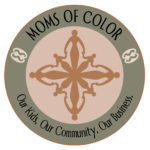
Introduction Empowering Your Journey: A Resource for Black Mothers is designed to address the specific challenges Black mothers may face during their prenatal and postnatal care journey due to structural racism and bias. This guide is not meant to replace professional medical advice, but rather to provide some useful strategies and resources to help navigate this critical period.
Understanding the Challenges Black mothers in the United States face a disproportionately high rate of adverse pregnancy outcomes, including higher maternal mortality rates and higher incidences of conditions like preeclampsia and gestational diabetes. Structural racism, lack of access to quality care, and implicit bias in healthcare are significant contributors to these disparities12.
Prenatal Care
- Finding a Supportive Healthcare Provider: It’s crucial to find a healthcare provider who understands and acknowledges these systemic issues. Your provider should be willing to listen to your concerns, respect your choices, and advocate for your health and well-being2.
- Advocate for Your Health: Speak up if you don’t feel well or have questions about your pregnancy. Don’t hesitate to seek a second opinion if needed. Remember, advocating for your health is crucial1.
- Understanding Your Risks: Be aware of the potential health risks associated with pregnancy, such as gestational diabetes and preeclampsia. If you have pre-existing conditions like hypertension or diabetes, make sure these are well-managed before and during pregnancy1.
Postnatal Care
- Extending Healthcare Coverage: Postpartum care is critical for the health of both the mother and the baby. Under the American Rescue Plan Act, Medicaid coverage for pregnant individuals can be extended from 60 days to one-year postpartum12.
- Accessing Mental Health Resources: Mental health is just as important as physical health. Ensure that you have access to mental health resources and support during the postnatal period.
- Community Support: Join local or online support groups for Black mothers such as “The Kuponya Group“. These communities can offer invaluable advice, support, and resources based on their experiences.
Policy Changes and Advocacy It’s important to recognize that changes need to be made at a systemic level to address these disparities. Advocacy for policy changes, such as improving access to healthcare for Medicaid enrollees, extending postpartum coverage, and passing laws like the Black Maternal Health Momnibus, is critical in this endeavor2.
Conclusion By being informed and proactive, you can play a vital role in ensuring your health and the health of your baby. Remember, it’s essential to advocate for yourself, seek support, and contribute to systemic changes to improve outcomes for Black mothers.
Please note that this guide should be used as a starting point and a resource. Always consult with healthcare professionals regarding any health-related decisions during your pregnancy and postnatal period.
With Love, Lakischa Smith
Meet Lakischa Smith, a proud mother and a dedicated public health advocate. With a Bachelor’s from Dillard University and a Master’s in Public Health from Florida International University, she’s committed to sharing honest narratives about black motherhood. Lakischa believes in fostering sisterhood to combat the pervasive forces of white supremacy, and empowering African American women to be agents of change for future generations. She asserts that recognizing and addressing our community’s struggles is crucial, for healing is the key to moving forward. Armed with the power of education and a deep belief in collective action, Lakischa is determined to ensure that the issues impacting African American maternal health aren’t just seen—they’re addressed and resolved.










